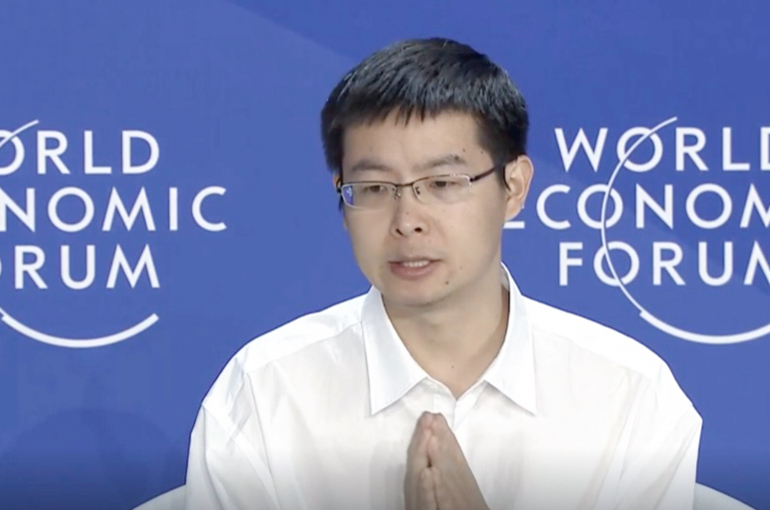 Humanoid Robots Will Go Mainstream When Tech Meets Demand, Unitree CEO Says
Humanoid Robots Will Go Mainstream When Tech Meets Demand, Unitree CEO Says(Yicai) June 26 -- It will take time for artificial intelligence-powered humanoid robots to become mainstream, as the technology must align with market demand, said Wang Xingxing, the founder of Unitree Robotics, at the Summer Davos.
Wang, founder and chief executive of Unitree, a developer of quadruped and humanoid robots, cautioned that the world is not yet ready to widely embrace humanoid robots. AI-powered robots will evolve gradually, step by step, as products need to precisely meet market demands.
Wang discussed the future of robotics with Zhou Yunjie, chairman and CEO of home appliance maker Haier Group, during the opening of the World Economic Forum’s 16th Annual Meeting of the New Champions -- also known as Summer Davos -- in Tianjin yesterday.
Zhou said Haier, which targets industrial and home service robots, is eager to explore potential collaboration with Unitree. Wang responded that Unitree looks forward to partnering with a major group like Haier.
Founded in 2016 and based in Hangzhou, Unitree is one of China’s leading emerging developers of humanoid robots, alongside rivals such as Ubtech Robotics and AgiBot. Best known initially for its dog-like quadruped robots, Unitree captured widespread attention when its humanoid model, the H1, performed a viral dance routine during the 2025 CCTV Spring Festival Gala.
Haier's Zhou emphasized the importance of an open-source ecosystem for inclusive development. To this end, the Qingdao-based company will open its safety-related patents to the industry, aiming to build an open-source ecosystem that benefits a broader audience. Zhou also noted that the company opposes price wars, arguing that the right strategy is “providing consumers with high-quality, cost-effective products.”
Wang acknowledged that competition is inevitable. In the long run, pressure drives innovation. “If Unitree stagnates in products or technology this year or next, we will quickly become a mediocre company.”
Obstacles remain for commercial applications. Industrial and agricultural use cases are developing relatively quickly, but home scenarios, which hold significant imaginative potential, still face many challenges. For products that closely interact with humans, these challenges relate more to safety than technology. Moreover, ethical and moral considerations also limit market potential, per Wang.
Technological breakthroughs, particularly in AI models, could accelerate industry development and enable broader market expansion, Wang said. However, applications cannot be “forced.” It is crucial to develop technologies that meet market demand, since premature or forced adoption may cause losses for companies, he added.
Unitree’s annual revenue has surpassed CNY1 billion (USD139.3 million), with around 1,000 employees, Xinhua Financial reported, citing Wang.
Editor: Emmi Laine